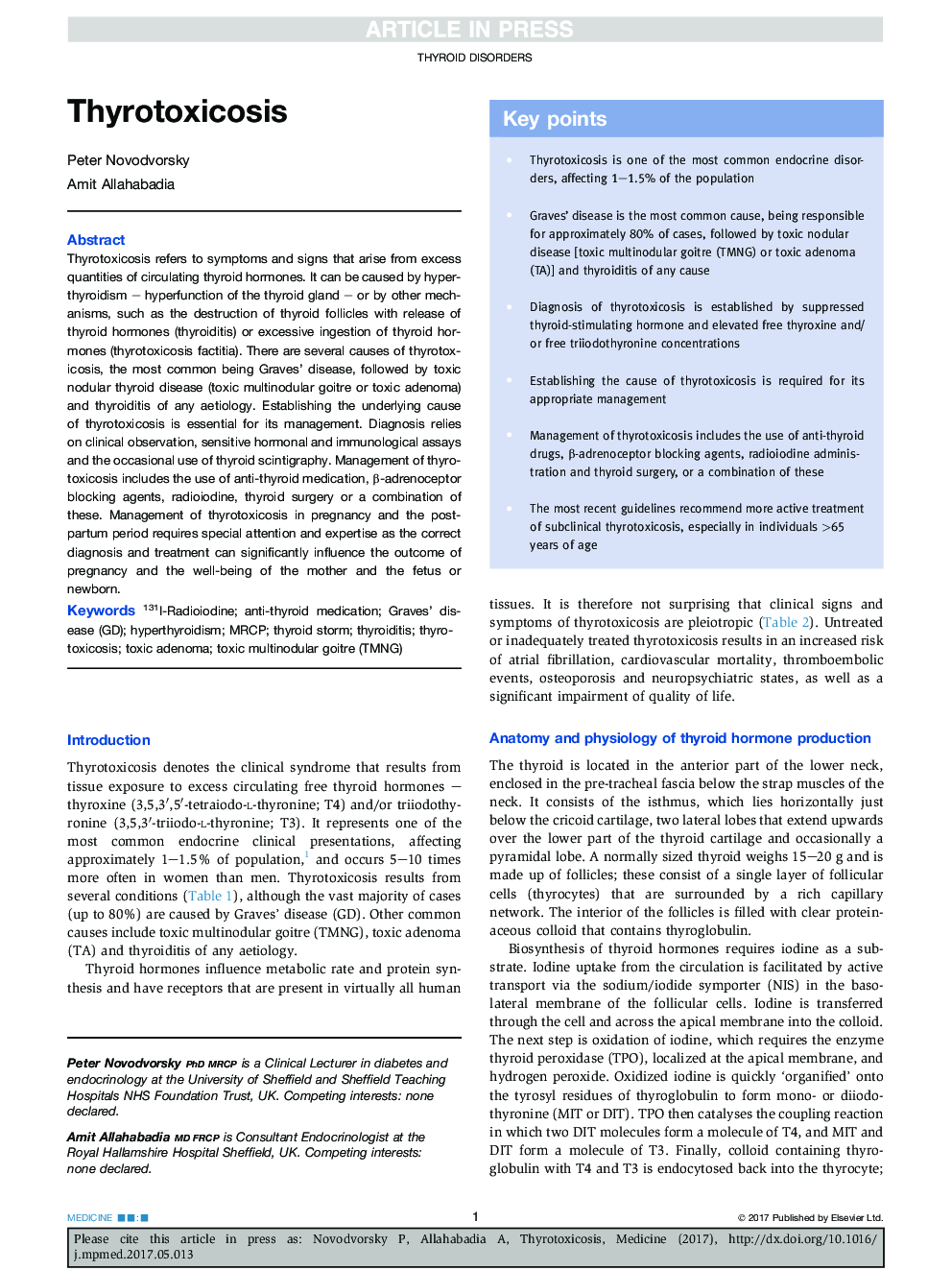| Article ID | Journal | Published Year | Pages | File Type |
|---|---|---|---|---|
| 5681132 | Medicine | 2017 | 7 Pages |
Abstract
Thyrotoxicosis refers to symptoms and signs that arise from excess quantities of circulating thyroid hormones. It can be caused by hyperthyroidism - hyperfunction of the thyroid gland - or by other mechanisms, such as the destruction of thyroid follicles with release of thyroid hormones (thyroiditis) or excessive ingestion of thyroid hormones (thyrotoxicosis factitia). There are several causes of thyrotoxicosis, the most common being Graves' disease, followed by toxic nodular thyroid disease (toxic multinodular goitre or toxic adenoma) and thyroiditis of any aetiology. Establishing the underlying cause of thyrotoxicosis is essential for its management. Diagnosis relies on clinical observation, sensitive hormonal and immunological assays and the occasional use of thyroid scintigraphy. Management of thyrotoxicosis includes the use of anti-thyroid medication, β-adrenoceptor blocking agents, radioiodine, thyroid surgery or a combination of these. Management of thyrotoxicosis in pregnancy and the postpartum period requires special attention and expertise as the correct diagnosis and treatment can significantly influence the outcome of pregnancy and the well-being of the mother and the fetus or newborn.
Related Topics
Health Sciences
Medicine and Dentistry
Medicine and Dentistry (General)
Authors
Peter Novodvorsky, Amit Allahabadia,
